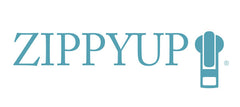1. Understanding the Procedure:
A C-section involves surgical incisions through the abdominal wall and uterus to deliver the baby. This procedure might be planned or performed as an emergency when complications arise. Understanding why the C-section was necessary can provide insight into your recovery journey.
2. Hospital Stay:
After the C-section, you'll spend a few days in the hospital. During this time, healthcare professionals will monitor your incision site, pain levels, and overall well-being. Don't hesitate to ask questions and seek advice on proper wound care.
3. Pain Management:
Pain is an inherent part of the recovery process, but effective pain management strategies are available. Your medical team may recommend over-the-counter pain relievers or prescribe medication to alleviate discomfort. Always follow their guidance and never hesitate to discuss your pain management options.
4. Wound Care:
Proper care of your incision site is crucial. Keep the area clean and dry, and follow any instructions given by your healthcare provider regarding dressing changes or bathing. Look out for signs of infection, such as redness, swelling, or discharge, and report any concerns promptly.
5. Movement and Activity:
While it's important to rest and recover, gentle movement can aid the healing process. Gradually introduce light activities like short walks, but avoid strenuous exercises or heavy lifting until your healthcare provider gives the green light.
6. Nutrition and Hydration:
Maintaining a healthy diet and staying hydrated are paramount to your recovery. Nutrient-rich foods support tissue repair, while proper hydration aids in preventing complications such as constipation.
7. Emotional Well-being:
Recovering from a C-section can take a toll on your emotional well-being. It's normal to experience a range of feelings, from joy to frustration. Surround yourself with a support system of friends, family, or support groups to share your emotions and seek advice.
8. Breastfeeding:
If you plan to breastfeed, the C-section recovery process might affect your initial breastfeeding journey. Positions and support pillows can help you find comfortable ways to nurse your baby while allowing your body to heal.
9. Postpartum Check-ups:
Attend all scheduled postpartum appointments with your healthcare provider. These visits are crucial for monitoring your recovery progress and addressing any concerns that may arise.
10. Patience and Self-Care:
Remember, every woman's recovery journey is unique. Be patient with yourself and prioritize self-care. Get adequate rest, accept help from others, and give your body the time it needs to heal fully.
In conclusion, C-section recovery for women in the UK involves a holistic approach encompassing physical, emotional, and psychological well-being. By understanding the procedure, practicing proper wound care, staying active, nourishing your body, and seeking support, you can navigate this postpartum phase with confidence and grace. Your strength and resilience will lay the foundation for a healthy and fulfilling post-C-section life.


